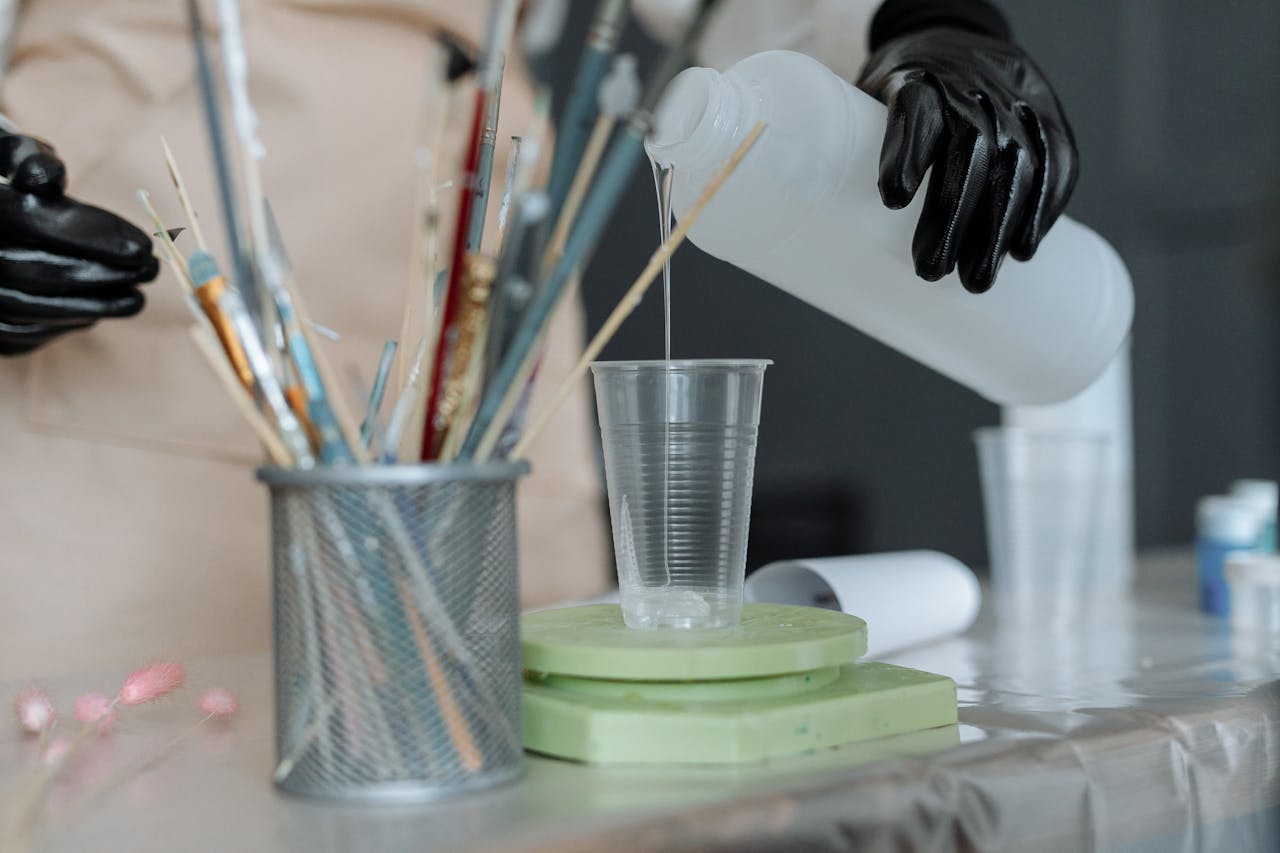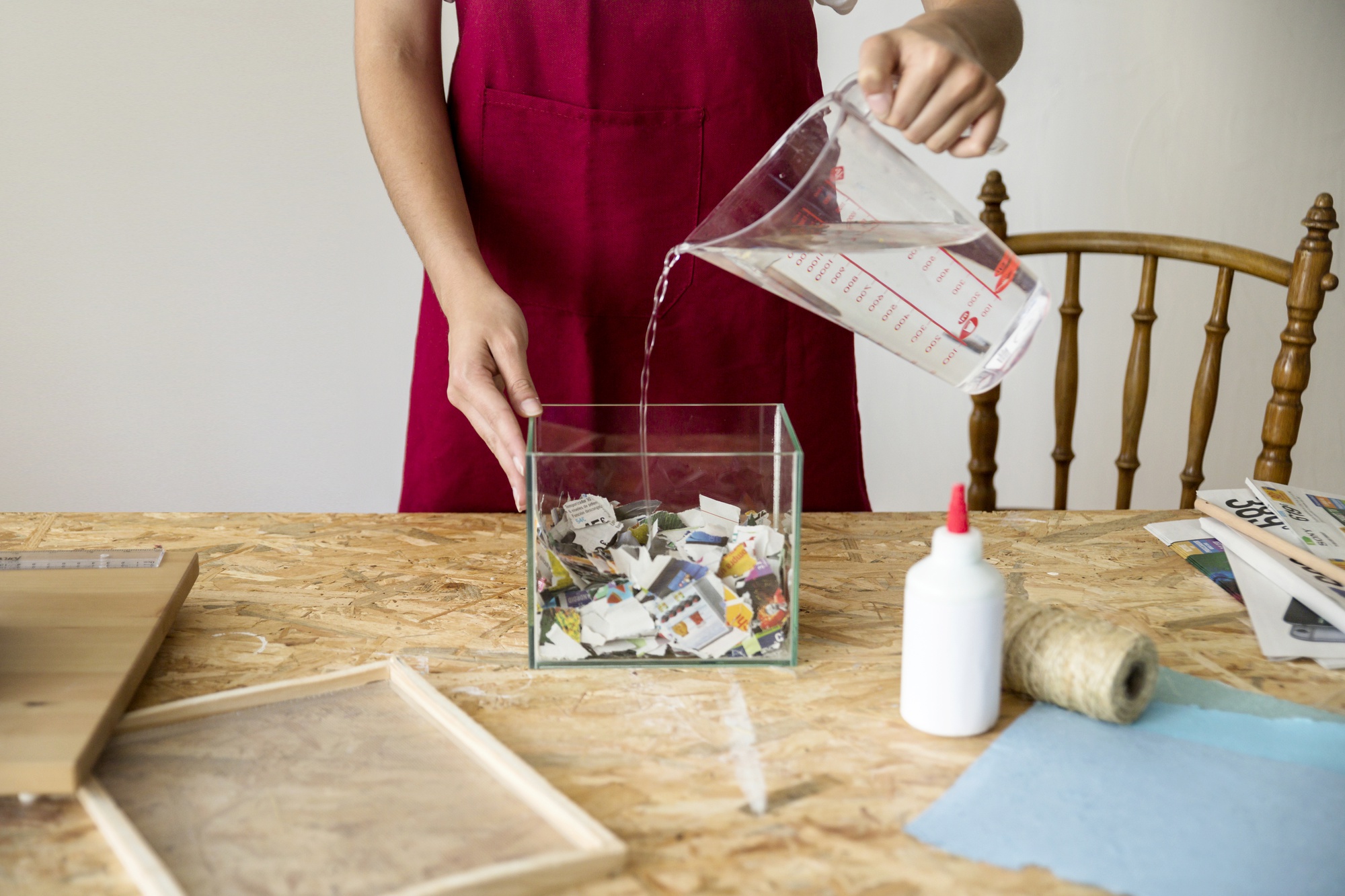What Kind of Resin Should I Use? Get PRO Advice

Resin is a popular material used in art and craft projects because of its beauty, versatility, and strength. It works well for creating jewellery, coating tabletops, and making molds.
Selecting the right resin is important for achieving the desired results. The choice depends on the project’s specific needs. With several types available, understanding their uses helps simplify the decision process.
This guide outlines the different types of resins, their applications, and tips for choosing the right one. Whether you’re working on art, or crafts this information will help you make clear and confident choices.
Common Types of Resins You Need to Know
Resin is a type of synthetic polymer. It is being widely used in crafts, art, as well as industrial applications.
When you opt to combine resin with a suitable hardener, it undergoes a unique chemical reaction that forms a durable & tough surface.
Different Types of Resins
- Epoxy Resin – It is known for its high gloss, clarity, & versatility.
- Casting Resin – The same is designed for deep pours and encapsulating objects.
- UV Resin – This variety of resin cures very quickly under UV light, and is ideal for small projects.
- Polyurethane Resin – This kind of resin offers immense flexibility and resistance to abrasion. It is ideal for functional items.
- Polyester Resin – It is durable but emits strong fumes. It is suited for industrial use.
- Acrylic Resin – This variant of resin is highly popular for creating solid forms and sculptures.
Every kind of resin has unique properties that make it highly suitable for specific applications.
Types of Resin: Features, Applications, and Expert Tips
- Epoxy Resin
- Features
- Glossy, clear finish
- Working time is long and is perfect for intricate projects.
- Excellent durability & UV resistance
- Best Uses
- Resin art, which also includes abstract designs and ocean pours.
- Coating tablespoons and countertops for a polished finish.
- Crafting jewellery, like earrings and pendants.
Pro Tip: When you buy epoxy resin online, you should necessarily ensure that you choose a high-quality brand to achieve the best results.
- UV Resin
- Features
- Its most distinctive feature is that it very rapidly cures when it is exposed to UV light.
- In this kind of resin, no mixing is required. Thus, it is absolutely beginner-friendly.
- Best Uses:
- Small projects like rings and keychains can be made from this type of resin.
- Apt for quick repairs for filling minor cracks.
Pro Tip: It cures rapidly when it is exposed to UV light. No mixing is required, and this makes it beginner-friendly.
- Casting Resin
- Characteristics:
- Low viscosity, ideal for deep pours.
- Longer curating time to allow for the release of air bubbles.
- Best Uses
- It is perfect for creating sculptures and mold.
- It encapsulates photos, flowers or other objects in resin and creates a beautiful look.
- This type of resin is ideal for preparing decorative items like coasters or paperweights.
- Polyester Resin
- Characteristics:
- Durable and strong.
- It emits strong fumes while in the process of curing.
- Best Uses:
- It is used for repairing fibreglass.
- This resin is useful in several marine applications.
Pro Tip: You may use this resin in a well-ventilated area & wear appropriate safety gear while handling the same.
- Polyurethane Resin
- Characteristics:
- Flexible & resistant to impact.
- It has a fast-curing time as compared to epoxy.
- Best Uses:
- Making molds & functional items like phone cases.
- It is useful in projects that require heat and are abrasion-resistant.
- Acrylic Resin
- Characteristics:
- Acrylic resin is easy to shape and is lightweight.
- It dries to a solid and has an opaque finish.
- Best Uses:
- It is useful in creating sculptures and in displaying pieces.
- The same is useful in projects that require solid and vibrant colours.
Factors to Consider While Choosing Resin
- Project Requirements – Firstly, you need to consider the size, depth, as well as the purpose of your project. For instance, casting resin works really well in the case of deep molds, while the epoxy resin is better for flat surfaces.
- Curing Time – In case you are working on a detailed project, then you ought to choose a resin with a long working time, like epoxy resin. On the contrary, if you are looking for quick fixes, then UV resin is indeed the best choice.
- Finish Quality – You ought to decide between a matte or glossy finish. Epoxy resin provides a very attractive high-gloss finish, while polyurethane resin comparatively offers a more functional look.
- Safety – You ought to choose resins like low VOC (volatile organic compounds). It ensures minimal health risks and reduced odour as well. It is always advisable to work in a well-ventilated area and wear proper masks and gloves while working with resins.
- Budget – Resins vary in price. Epoxy resin art supplies are usually more affordable, while polyurethane resin or specialized resins can prove to be much costlier.
Pro Tip: Popular and renowned resin brands like Vajra Epoxy offer the most premium options of resins.
PRO Tips for Choosing & Using Resin
Tip 1: Measure & Mix Resins Correctly
You should be careful about adopting precise measurements in order to avoid any kind of improper curing. Most of the resins require the resin to hardener in the ratio of 1:1 or 2:1.
Tip 2: Test First
It is advisable to test your resin on a small sample before you start using the same on large-scale projects. This specifically helps you in identifying any kind of potential issues with the concerned resin.
Tip 3: Work in a Clean Environment
Debris or dust can likely ruin the overall finish of your resin project. So, it is always wise to work in a dust-free and clean area.
Tip 4: Use Proper Tools
You should ideally invest in high-quality silicone mixing cups, heat guns, and reusable stir sticks for the purpose of bubble removal.
Tip 5: Store Resin Properly
You should necessarily store resin in a dry & cool place in order to extend its shelf life considerably. You ought to avoid exposing it to direct sunlight or extreme temperatures.
Common Mistakes to Be Avoided
- Incorrect Ratio of Mixing – Failure to measure resin & hardener accurately can indeed result in uncured or tacky surfaces.
- Using the Wrong Resin – You should ideally match the type of your resin as per your project needs.
- Skipping Safety Measures – Neglecting masks, gloves, or ventilation can lead to certain health hazards.
- Rushing the Process of Curing – You ought to be patient. Rushing can result in certain kinds of imperfections like uneven surfaces or bubbles.
FAQs
Q1. Which is considered to be the best resin for beginners?
Epoxy resin is considered to be ideal for beginners as its working time is fairly long and it is perfect for intricate projects.
Q2. Is it possible to mix various types of resin?
Mixing resins is not recommended as it may affect the process of curing and the final results are also affected to a large extent.
Q3. How do I ensure a bubble-free finish?
You may use a torch or gun to remove bubbles during the process of curing.
At Vajra Epoxy, we understand the importance of choosing the right resin for your project. Whether it’s epoxy resin art supplies for tabletops or UV resins for jewelry, selecting the right product ensures the best results.
We encourage you to experiment, refine, and create with confidence. When you’re ready, you can easily buy epoxy resin online from us. Let Vajra Epoxy help you bring your ideas to life!




